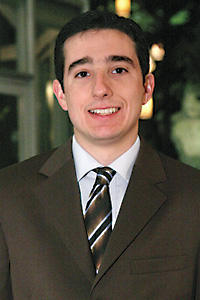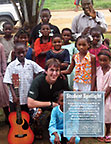Watching from the Wings
Printer Friendly Version While many students were in class on March 30, Jacob Karabell ’09 was at the U.S. Supreme Court watching Samuel Issacharoff, Bonnie and Richard Reiss Professor of Constitutional Law, deliver an oral argument that Karabell helped him prepare in Travelers Indemnity v. Bailey and the consolidated case Common Law Settlement Counsel v. Bailey.
While many students were in class on March 30, Jacob Karabell ’09 was at the U.S. Supreme Court watching Samuel Issacharoff, Bonnie and Richard Reiss Professor of Constitutional Law, deliver an oral argument that Karabell helped him prepare in Travelers Indemnity v. Bailey and the consolidated case Common Law Settlement Counsel v. Bailey.
The case involves the long-running asbestos litigation. After Travelers and other insurers contributed to a $2.8 billion settlement fund in exchange for immunity from the bankruptcy court from future claims, plaintiffs’ lawyers found other grounds to sue. Following mediation, Travelers then funded a $500 million trust in return for clarification that it would be immune from future claims. Plaintiffs not part of the new settlement objected, and the U.S. Court of Appeals for the Second Circuit agreed, finding that the bankruptcy court did not have the power to immunize Travelers from other claims. The Supreme Court granted review.
Karabell, now an associate at Covington & Burling in Washington, D.C., began assisting Issacharoff, who represents the plaintiffs against Travelers, in January. He reviewed Supreme Court and circuit case law, legislative history, and scholarship. Students from the Supreme Court Litigation Clinic also assisted with the brief, and that clinic and its director, Samuel Estreicher, Dwight D. Opperman Professor of Law, were co-counsel on the brief.
Once the brief was submitted, Karabell helped Issacharoff prepare for oral argument by researching potential questions from the bench. Justice Souter asked whether subjectmatter jurisdiction ever can be challenged collaterally if it is not contested in the first proceeding. Issacharoff relied on Karabell’s research to answer that the Court had never squarely addressed the issue. “I had run through the argument a million times in my head. As a result, it was fascinating to watch everything unfold several rows in front of me.”
–
All of 2009 Student Spotlight

 Multimedia
Multimedia